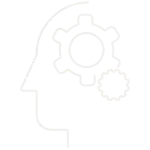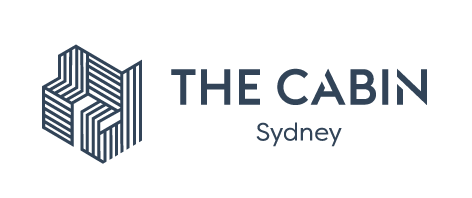 Addiction Therapy
Addiction Therapy
 Changing Pathways
Changing Pathways
 Individual Counselling
Individual Counselling
 Group
Group
Therapy
Addiction Therapy
Demanding work and family life make it hard to get the treatment needed to overcome addiction and ironically these are also the very things that suffer and are impacted by addiction. However, because of the progressive and chronic nature of the disease of addiction, it does not get better over time, but rather worse.
Given this, The Cabin Sydney has developed a range of treatment options designed to effectively tackle addiction. Featuring our intensive tailored programme known as Changing Pathways, the gold standard in outpatient addiction treatment, the clinic offers the following services:
- 1-on-1 Addiction Counselling
- Group Therapy
- Family Programme (our recovery is supported by our family members having awareness as well)
- Complimentary Therapy (i.e. Mindfulness)
- Follow-up and Aftercare Programme
- Psychiatric Assessment & Medication Review
- Fast-tracked access to Asia’s leading inpatient clinics, The Cabin Rehab
The Cabin Sydney is also involved in the wider community. The links below will direct you to more information about our work with schools, businesses and other behavioural health practices.
Changing Pathways Groups
Process Group & Focus Group
This process group gives clients an opportunity to freely discuss concerns and successes in their lives, with the support of their peers and guidance of the counsellors. The groups focus on emotional content to help clients more fully experience these aspects of their lives and regulate any toxic reactivity. Most recovering addicts have been medicating their emotions with substances and behaviours. Developing intelligent responses to emotional stimuli is essential to addiction recovery. Clients will learn to identify their emotions according to the 8 basic emotions, and develop strategies to more effectively use their emotions as information. Combined with the CBT group, clients will mature in their abilities to manage their own emotions and support others.
ABCs of CBT
“Cognitive behavioural therapy (CBT) is perhaps one of the most frequently used psychotherapeutic orientations, with considerable research supporting its effectiveness and adaptability in clinical practice,” according to the US National Registry of Evidence Based Programs and Practices. Clients will gain an understanding of the ‘ABC’ model of dissecting their problematic thinking and behaviour, in order to lead a happier and healthier life. CBT is proven effective in treating depression, anxiety and addiction. Clients will actively engage in CBT practices in this group.
Emotional Intelligence (Process)
This process group gives clients an opportunity to freely discuss concerns and successes in their lives, with the support of their peers and guidance of the counsellors. The groups focus on emotional content to help clients more fully experience these aspects of their lives and regulate any toxic reactivity. Most recovering addicts have been medicating their emotions with substances and behaviours. Developing intelligent responses to emotional stimuli is essential to addiction recovery. Clients will learn to identify their emotions according to the 8 basic emotions, and develop strategies to more effectively use their emotions as information. Combined with the CBT group, clients will mature in their abilities to manage their own emotions and support others.
Mindfulness Meditation
Mindfulness, meditation and gentle exercise have been shown to reduce anxiety and stress. This group aims at providing a sense of mindfulness and relaxation through mindfulness practice. This group is offered at the end of the week to provide relaxation and mindfulness for the weekend, a time when many people may feel triggered or stressed.
Boundaries & Co-dependency
Clients will be introduced to the concept of co-dependency and unhealthy patterns in relationships. A thorough discussion of Boundaries, Boundary failures and Boundary violations will be offered. They will understand the underlying issues that drive enmeshed and avoidant relationships and how healthy boundaries can heal those relationships. The concept of Love Addiction will also be explored. CBT tools will be utilised to better achieve healthy and intimate relationships.
Family Group
Mounting research-based evidence points to the importance of family in helping an individual achieve long-term recovery. Family members of those suffering from addiction are invited to attend this supportive and educational group where they can learn about and participate in their loved one’s recovery and also begin their own healing and recovery from addiction. Family and friends of those suffering from addiction frequently experience depression, anxiety and stress. Our Family Programme is designed to help equip family members to cope with these stressors, and maintain their resilience in the face of such difficulties. Additionally, as their loved ones participate in active recovery, many new questions arise that will be addressed in this group.
Relapse Prevention Continuing Care Group
This group caters to clients who have entered later stages of recovery. They have completed residential and/or intensive outpatient treatment and are offered the opportunity to continue their recovery work. This group facilitates an environment for clients to review and share recovery experiences, aftercare plans, sobriety goals and how they are navigating early recovery outside of structured environments. Some groups may involve specific and helpful education pieces while others will be more open for client issues and suggestions for discussions. The groups are facilitated by a counsellor but clients are encouraged to take an active role and bring to group issues relevant to them.
Individual Counselling
Our offices are open from 10am to 9pm for all enquires and for scheduling appointments. Addiction counselling services takes place between 9am to 7pm, Monday to Friday, and 9am to 5pm on Saturday. Please contact us to arrange a confidential assessment.
Please see the schedule below for more details.
Addiction Therapy:
Tailored counselling through a client-centered approach to help clients through the different stages
of their recovery journey. This is achieved through utlising the following evidence based approaches:
- Cognitive Behavioural Therapy (CBT) – talking therapy that is tailored to each client’s
addiction needs to help change negative thinking and behavioral patterns. - Relapse Prevention – Assisting clients to formulate a comprehensive relapse prevention plan
that identifies environmental and emotional triggers and helping them to implement
effective coping strategies. - 12 Steps – Providing information and guidance around engaging with the 12 step fellowship.
- Mindfulness & Meditation practices – to treat mental and emotional health disorders, such
as anxiety and depression, which often co-occur with addiction. - Dialectical Behavioural Therapy (DBT) – to help clients cope with intense cravings and learn
skills around interpersonal communication and distress tolerance.
Couples Sessions:
To focus on developing more adaptive communication and coping strategies to support each other
through the recovery process. Creating a safe environment for couples to process and reflect on any
challenges they may experience through the ever evolving nature of addiction and recovery.
Art Therapy:
Art Therapy is a therapeutic modality that can provide sensory engagement, which over time, allows
for emotions to be processed in our brain’s limbic system and grants us cognitive insights in novel
ways. The creative space for the reflection of the self through art-making is powerful in addiction
recovery as it targets the very nature of addiction and its roots.
Mindfulness and Meditation Coaching:
Addicted brains are overactive because of depleted dopamine systems and requiring excessive
stimulation. Mindfulness is proven to be effective to help normalise these brains and increase focus.
Coaching develops skills to bring the self into the present through noticing thoughts as they occur
and acknowledging them and redirecting focus to the present. This is achieved through a variety of
exercises; visualizations, relaxation exercises, paced breathing etc.
Group Therapy
Continuing Care Group:
A group for alumni of The Cabin to support each other in their ongoing recovery journey.
Psychoeducation group (SYD & SG)
This is an open curriculum where clients are able to enter a 12-week programme at any time. Clients
learn key information on addiction and the relevant issues around the disorder. This provides an
excellent foundation and knowledge base for a successful recovery.
Recovery Group (SYD & SG)
Interactive, experiential and activity based groups where clients learn and practice hands-on tools or
skills needed to stay sober.
Process Group (SYD & SG)
Psychodynamic-oriented groups where clients foster connections with their peers by sharing their
thoughts and feelings in a safe non judgemental space.
Family Program:
This is an 8-week course which provides information about the disease of addiction and the effects
addiction has on family members. We strive to educate family members on how to best look after
themselves and support their loved one during the recovery process.
